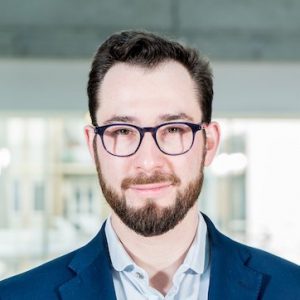Due to the COVID-19 pandemic, the Workshop will be held online on the Underline video platform on November 29th, 2021 (2.00-6.00pm) with live presentations. (More information about Underline and the instruction to participate to the Workshop will be provided as soon as possible. Stay tuned!)
Schedule – Monday November 29th
14:00-15:00 CET
14:00-14:10 Welcome to NL4AI 2021
14:10-15:00 Invited talk: More than words – Integrating social factors into language modeling
Abstract: Language is a social construct. We use it to achieve various conversational goals. Only one among them is to convey information. However, natural language processing has traditionally focused only on this informational aspect, ignoring all social aspects of language. That restriction was partially necessary to make modeling progress. However, I argue that as modeling power increases, we might want to revisit the issue. Social aspects of language can help disambiguate meaning, add more nuance to our models, and are becoming increasingly important in all aspects of generation. In this talk, I will outline several of the social dimensions that influence language use, how they affect NLP models, and what efforts are already underway to incorporate them. I will conclude with some open questions and ideas for future directions. If we manage to include social aspects of language into NLP, I believe we will open new research avenues, improve performance, and create fairer language technology.

Dirk Hovy is associate professor of computer science at Bocconi University in Milan, Italy. Before that, he was faculty and a postdoc in Copenhagen, got a PhD from USC, and a master’s in linguistics in Germany. He is interested in modeling the interaction between language and society, or what language can tell us about society, and what computers can tell us about language. He recently received an ERC Starting grant to explore the effect of sociodemographic variation on NLP models. Dirk has authored over 70 articles on these topics, including 3 best paper awards. He has organized one conference and several workshops (on abusive language, ethics in NLP, and computational social science). Outside of work, Dirk enjoys cooking, running, and leather-crafting. For updated information, see http://www.dirkhovy.com
15:00-16:00 CET
Session 1
Chair – Lucia C. Passaro
15:00-15:15 Easy-to-use combination of POS and BERT model for domain-specific and misspelled terms [PDF]
Alexandra Benamar, Meryl Bothua, Cyril Grouin and Anne Vilnat
15:15-15:30 A Sequence to Sequence approach for Knowledge Base Relation Linking [PDF]
Vito Barbara, Manuel Alejandro Borroto Santana and Francesco Ricca
15:30-15:45 Tint, the Swiss-Army Tool for Natural Language Processing in Italian [PDF]
Alessio Palmero Aprosio
15:45-16:00 Design and Experiments of an Artificial Player for a Word Association Game [PDF]
Alberto Coffrini, Stefania Monica and Federico Bergenti
16:00-16:15 CET
“Coffee” break
16:15-17:45 CET
Session 2
Chair – Rachele Sprugnoli
16:15-16:30 A Preliminary Evaluation of a Privacy-Preserving Dialogue System [PDF]
Bettina Fazzinga, Andrea Galassi and Paolo Torroni
16:30-16:45 MT-GAN-BERT: Multi-Task and Generative Adversarial Learning for sustainable Language Processing [PDF]
Claudia Breazzano, Danilo Croce and Roberto Basili
16:45-17:00 Sign Languages and Natural Language Processing: an overview [PDF]
Sabina Fontana and Gaia Caligiore
17:00-17:15 Evaluating Transformer Models for Punctuation Restoration in Italian [PDF]
Alessio Miaschi, Andrea Amelio Ravelli and Felice Dell’Orletta
17:15-17:30 Leveraging CLIP for Image Emotion Recognition [PDF]
Alessandro Bondielli and Lucia Passaro
17:30-17:45 Mining Annotator Perspectives from Hate Speech Corpora [PDF]
Michael Fell, Sohail Akhtar and Valerio Basile
17:45-18:00 CET
17:45-18:00 Conclusions and final remarks